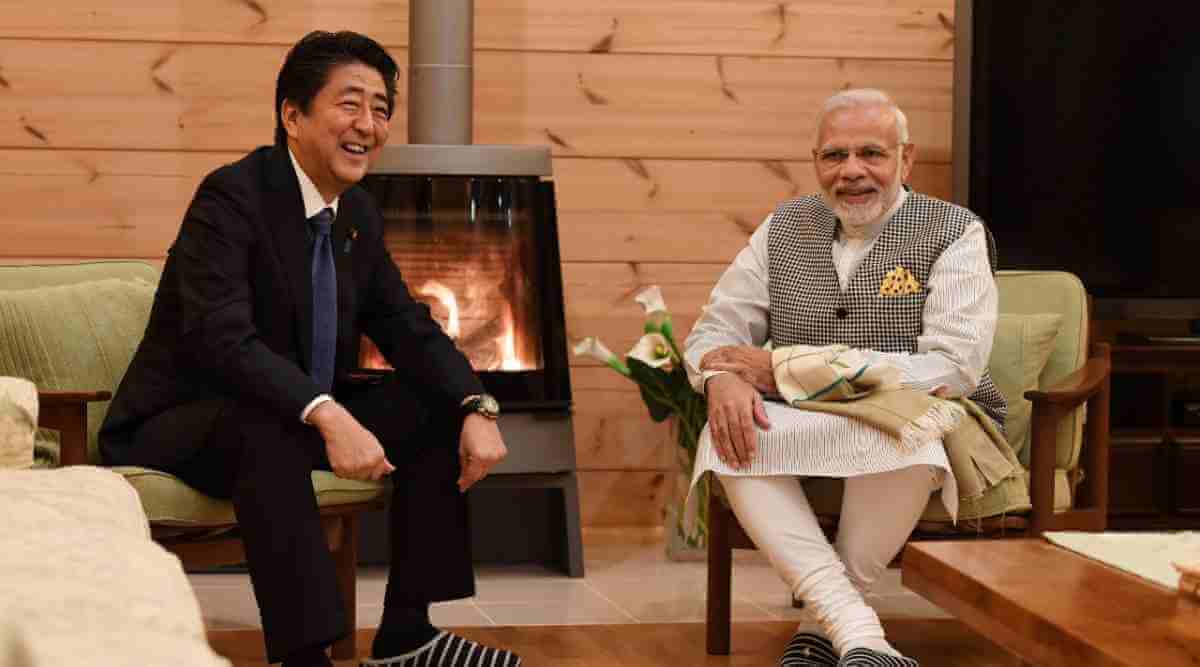In a move strengthening bilateral relations, India and Japan signed a defence supplies and services agreement. According to the agreement, the Indian armed forces and Japan’s Self-Defence Forces (JSDF) will facilitate the “reciprocal provision” of logistical support, meaning that closer cooperation will ensue between the two militaries. The agreement was finalised following years of negotiations between the two sides. Also known as the acquisition and cross-servicing pact, the deal was signed by Indian Defence Secretary Ajay Kumar and the Japanese Ambassador Suzuki Satoshi yesterday.
The timing of the agreement is relevant because it indicates crucial support from Tokyo amidst New Delhi’s border stand-off with Beijing. Article 2 of the deal provides both the countries “base operation support,” referring to Indian naval access to a Japanese military base in Djibouti. Similarly, Japan’s Maritime JSDF will also be able to access Indian bases in the Andaman and Nicobar Islands. Furthermore, the agreement promotes interoperability by forging close cooperation between the militaries in the domains of transport (including airlifts), communications, repairs, and also airport services. However, Article 2 of the agreement also explicitly states that services exchanged between the two militaries will not include weapons or ammunition.
Currently, Japan has similar arrangements with the US, Britain, France, Canada and Australia. In comparison, India has such military agreements with the United States (US), Australia, France, South Korea and Singapore. In fact, it was only in June that India signed the Mutual Logistics Support Agreement (MLSA), with Australia to deepen defence cooperation between the two states.
During a 30-minute phone call, Indian Prime Minister Narendra Modi and his Japanese counterpart Shinzo Abe held their annual bilateral summit on Thursday, in which they announced the signing of the landmark deal. Following their discussion, the Japanese government said, “With regard to the significant enhancement of Japan-India relations in recent years, Prime Minister Abe stated that both Prime Ministers took actions towards realising the vision of a Free and Open Indo-Pacific and the Special Strategic and Global Partnership between Japan and India was elevated to greater heights.”
Abe will soon be stepping down from office, owing to health reasons, and Modi spoke of shared memories with his “dear friend” while announcing the signing of the long-expected military logistic agreement. Apart from announcing the deal, the two leaders also “reviewed the status” of ongoing cooperation, emphasising on the Mumbai-Ahmedabad High-Speed Rail (MAHSR) project, under the framework of the India-Japan Special Strategic & Global Partnership.
At the strategic level, the agreement furthers the policy of a free and open Indo-Pacific region advocated by the United States (US) to check China’s growing assertiveness. This newly inked deal is a step in the direction of expanding strategic cooperation with Japan under the framework of the “Quad” forum. Officially known as the Quadrilateral Security Dialogue, the grouping is an informal strategic forum of four democracies—the US, India, Japan and Australia—and holds semiregular summits, joint military drills, and discussions on regional economic and development issues.
China has long opposed the idea of Quad and has labelled it as exclusionary. The concept of the Quad is credited to Abe, whose August 2007 speech titled “Confluence of the Two Seas” provided the foundations for the grouping. Recently, the US has been pushing to “formalise” the Quad and sought a more significant role to be played by India in the Indo-Pacific region. India’s approach to the Quad has focused on expanding its maritime capabilities. In this regard, it has carried out naval exercises with Quad members, the latest being with Japan in June.
India-Japan Ink Landmark Mutual Defence Logistics Pact
In light of China’s growing assertiveness, the timing of the deal is noteworthy, as it promotes India-Japan military cooperation.
September 12, 2020

Prime Minister Narendra Modi with his Japanese counterpart, Shinzo Abe. SOURCE: TWITTER
